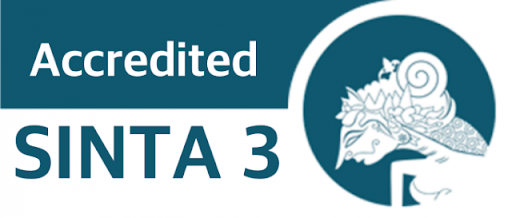Management Strategy in Developing the Halal Industry in the Era of Globalization
DOI:
https://doi.org/10.37680/ijief.v3i2.6271Keywords:
Management; Halal Industry; Challenges And OpportunitiesAbstract
The halal industry has grown rapidly, becoming an important sector in the global market with a scope that includes food, pharmaceutical, cosmetic, and tourism products. This creates opportunities and challenges, especially in maintaining the authenticity and quality of halal products throughout the supply chain. This article aims to examine management strategies in the halal industry that are from the perspective of Islamic economics with materials consisting of halal ingredients, both substances, how to obtain and process them, and are carried out in the halal industry area, where all industrial lots must be allocated for halal products, have halal facilities and infrastructure, and have a halal management team and analyze the various challenges faced, and identify opportunities that can support the development of this sector. The research method used is a literature study of 20 recent journal articles on halal industry management by collecting relevant journal articles from various sources. The study results show that certification, technological innovation, and halal supply chains are important components that must be optimized. Thus, a comprehensive management approach is needed to sustain the halal industry's growth.
References
Alam, M. R. (2019). Digital Transformation in Halal Industry. Journal of Digital Business.
Aziz, N. A. (2021). Halal Management in Global Market. Journal of Islamic Marketing.
Bashir, S. e. (2020). The Global Halal Economy. Journal of Islamic Economics.
Fadil, A. e. (2019). Challenges in Halal Cosmetics. Journal of Cosmetics Science.
Fetyh Tanala Hida et.al. (n.d.). Analisis Manajemen Industri Halal Perspektif Ekonomi Islam. Jurnal Reflektika.
Hashim, R. &. (2020). Product Innovation in Halal Market. Journal of Product Management.
Ibrahim, A. &. (2022). Halal Certification and Its Impact on Consumer Trust. International Journal of Islamic Business.
Jamil, S. &. (2021). Halal Logistics Systems. Journal of Supply Chain Management.
Khan, N. A. (2020). Blockchain in Halal Supply Chain. Journal of Technology Management.
Mokhtar, R. e. (2019). Training and Certification for Halal Industries. Journal of Human Resources in Halal.
Muhammad, H. e. (2020). Halal Pharmaceutical Standards. Journal of Pharmaceutical Studies.
Noor, H. e. (2018). The Competitive Advantage of Halal Certification. Asian Journal of Business.
Norazmi, A. e. (2019). Comprehensive Halal Industry Guide. Journal of Halal Studies.
Nurhayati, A. S. (2019). Pengembangan Modal Manusia Industri Halal Perspektif Manajemen Islam. Proceeding 8th Metro International Conference on Islamic Studies (MICIS) (Post Graduate IAIN Metro Lampung, 75.
Othman, N. e. (2019). Halal Food Production Standards. Journal of Food Studies.
Qadir, M. &. (2022). Consumer Behavior Towards Halal Products. Journal of Consumer St.
Rahman, M. &. (2021). Halal Supply Chain Challenges and Solutions. Journal of Logistics and Supply Chain.
Saad, M. R. (2021). Halal Tourism and Hospitality Management. Journal of Tourism Research.
Shafie, S. &. (2020). Challenges in the Halal Supply Chain. International Journal of Business Management.
Sulistiani, S. L. (2018). Analisis Maqashid Syariah dalam Pengembangan Hukum Industri Halal di Indonesia. Jurnal Law & Justice, Vol.3, No.2, 91.
Talib, A. e. (2020). Managing Halal Supply Chain Effectively. Logistics Journal.
Zainol Fata, e. (2023 ). Halal Industry Management in Islamic Economic Perspective. Ta’amul: Journal of Islamic Economics, Vol.2, No.1, E-ISSN: 2964-0644.
Zulkifli, A. e. (2021). Human Capital in Halal Industry. Journal of Islamic Studies.
Downloads
Published
How to Cite
Issue
Section
License
Copyright:
An author who publishes in Indonesian Journal of Islamic Ekonomics and Finance agrees to the following terms:
- Author retains the copyright and grants the journal the right of first publication of the work simultaneously licensed under a Creative Commons Attribution-NonCommercial 4.0 International License that allows others to share the work with an acknowledgment of the work's authorship and initial publication in this journal.
- Author is able to enter into separate, additional contractual arrangements for the non-exclusive distribution of the journal's published version of the work (e.g., post it to an institutional repository or publish it in a book) with the acknowledgment of its initial publication in this journal.
- Author is permitted and encouraged to post his/her work online (e.g., in institutional repositories or on their website) prior to and during the submission process, as it can lead to productive exchanges, as well as earlier and greater citation of the published work (See The Effect of Open Access).
License:
-
Attribution — You must give appropriate credit, provide a link to the license, and indicate if changes were made. You may do so in any reasonable manner, but not in any way that suggests the licensor endorses you or your use.
-
NonCommercial — You may not use the material for commercial purposes.
-
No additional restrictions — You may not apply legal terms or technological measures that legally restrict others from doing anything the license permits.
You are free to:
- Share — copy and redistribute the material in any medium or format
- Adapt — remix, transform, and build upon the material

This work is licensed under a Creative Commons Attribution-NonCommercial 4.0 International License.



.png)







